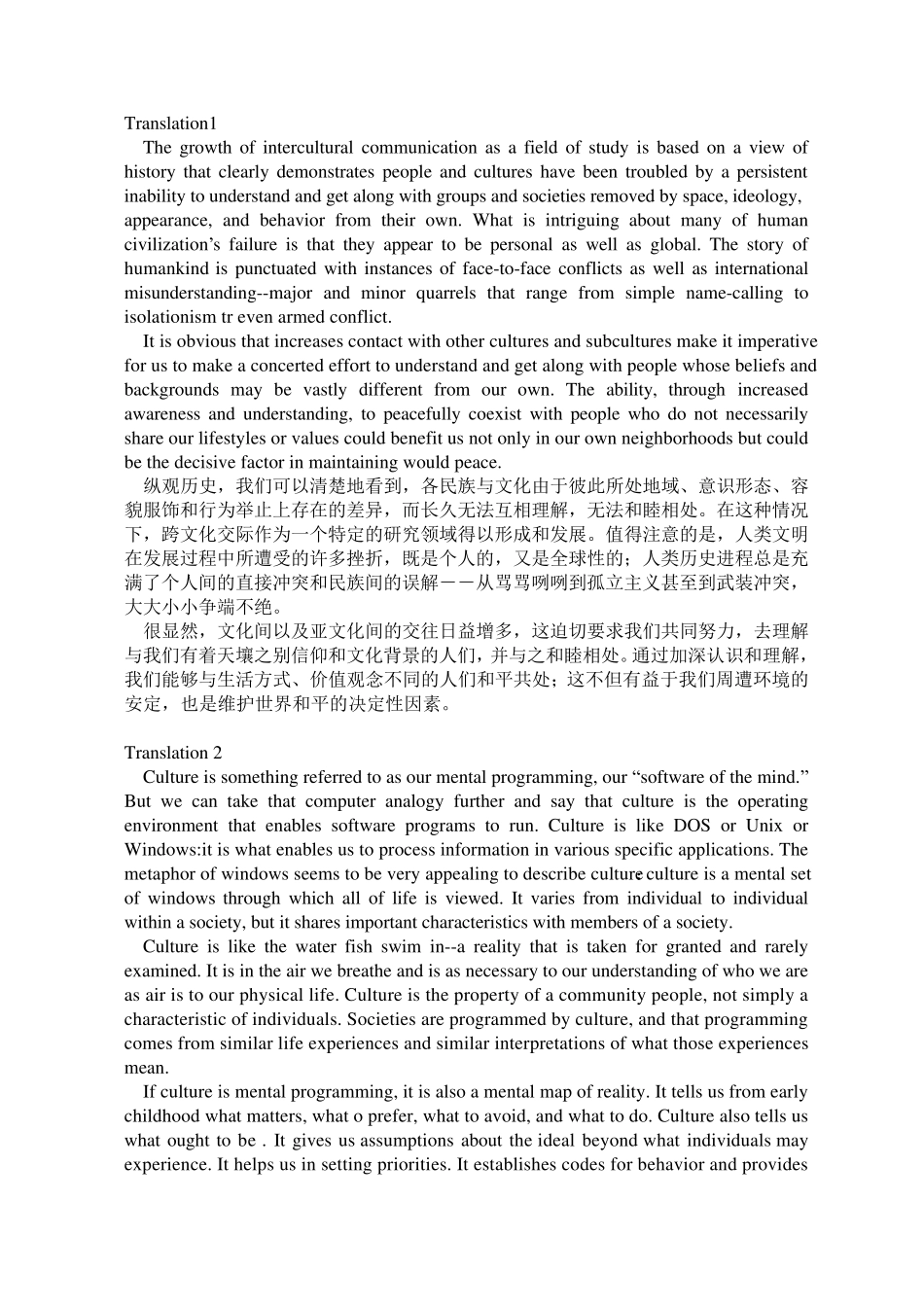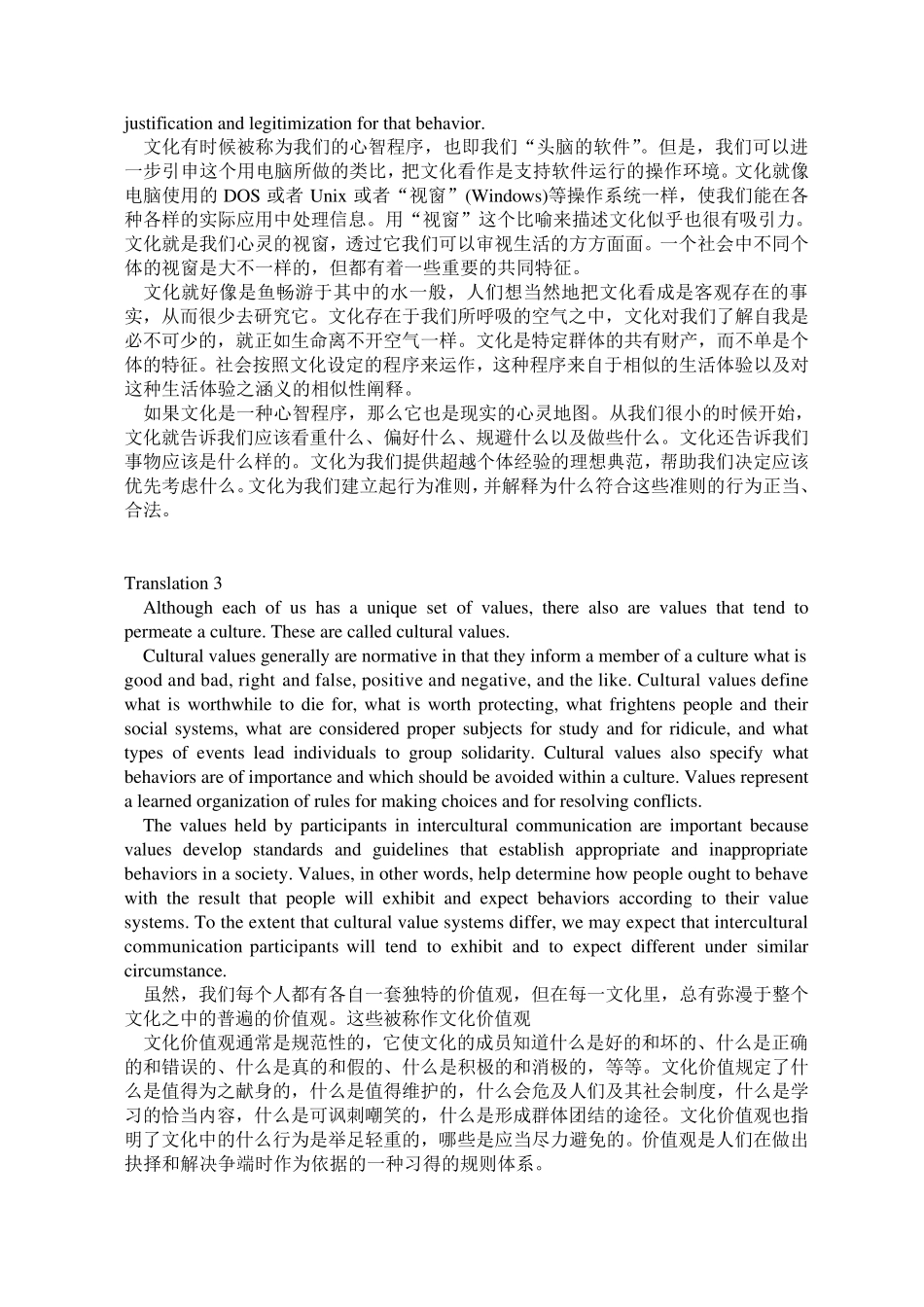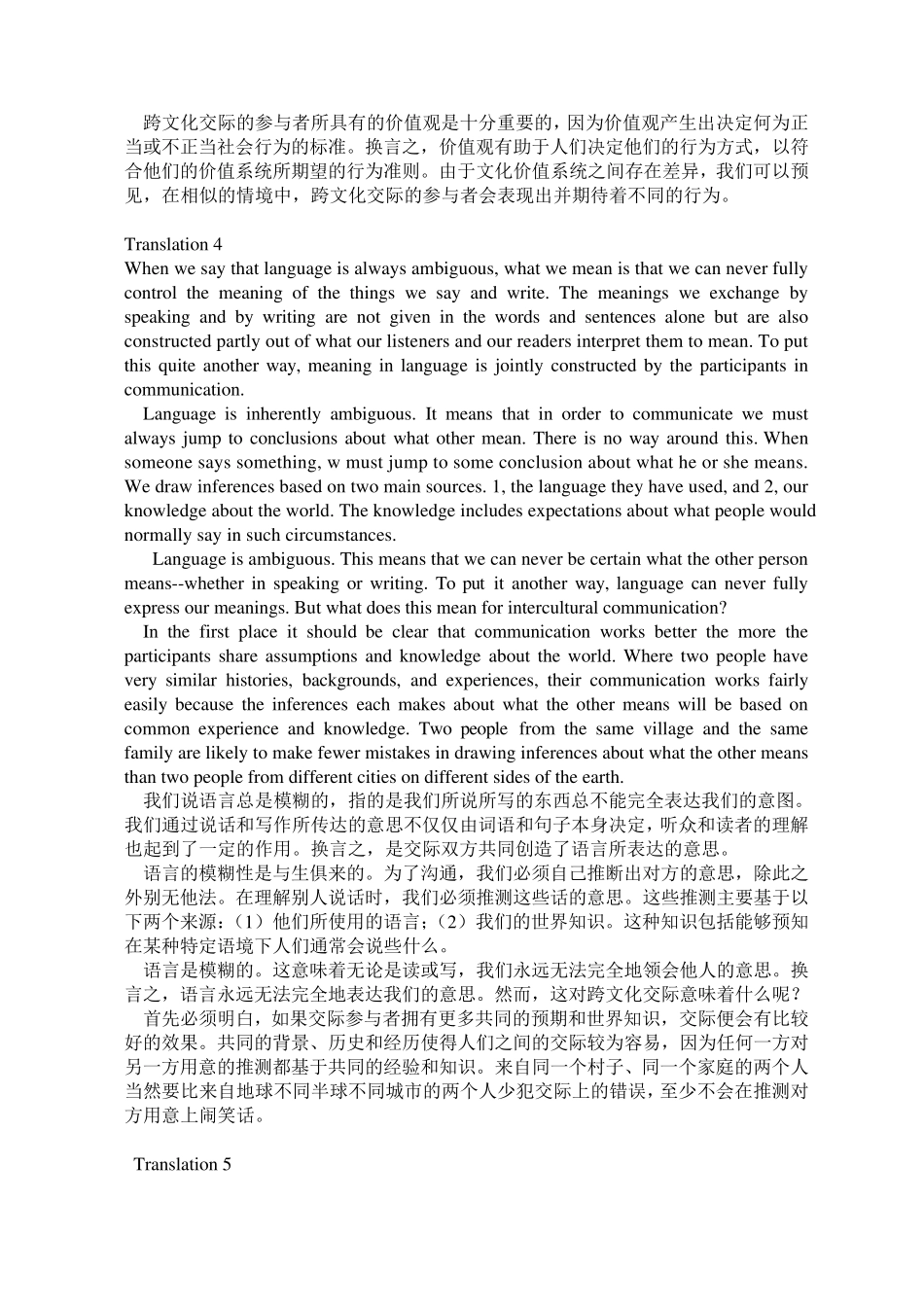Translation1 The growth of intercultural communication as a field of study is based on a view of history that clearly demonstrates people and cultures have been troubled by a persistent inability to understand and get along with groups and societies removed by space, ideology, appearance, and behavior from their own. What is intriguing about many of human civilization’s failure is that they appear to be personal as well as global. The story of humankind is punctuated with instances of face-to-face conflicts as well as international misunderstanding--major and minor quarrels that range from simple name-calling to isolationism tr even armed conflict. It is obvious that increases contact with other cultures and subcultures make it imperative for us to make a concerted effort to understand and get along with people whose beliefs and backgrounds may be vastly different from our own. The ability, through increased awareness and understanding, to peacefully coexist with people who do not necessarily share our lifestyles or values could benefit us not only in our own neighborhoods but could be the decisive factor in maintaining would peace. 纵观历史,我们可以清楚地看到,各民族与文化由于彼此所处地域、意识形态、容貌服饰和行为举止上存在的差异,而长久无法互相理解,无法和睦相处。在这种情况下,跨文化交际作为一个特定的研究领域得以形成和发展。值得注意的是,人类文明在发展过程中所遭受的许多挫折,既是个人的,又是全球性的;人类历史进程总是充满了个人间的直接冲突和民族间的误解--从骂骂咧咧到孤立主义甚至到武装冲突,大大小小争端不绝。 很显然,文化间以及亚文化间的交往日益增多,这迫切要求我们共同努力,去理解与我们有着天壤之别信仰和文化背景的人们,并与之和睦相处。通过加深认识和理解,我们能够与生活方式、价值观念不同的人们和平共处;这不但有益于我们周遭环境的安定,也是维护世界和平的决定性因素。 Translation 2 Cu...


